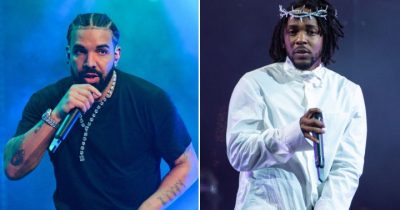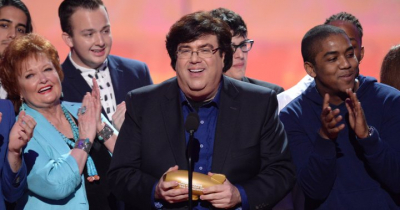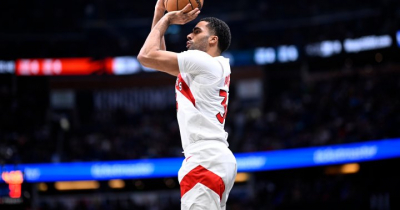Tarik Trotter, known by his stage name Black Thought, didn't grow up with the idea of becoming a musician. In fact, as a child in North Philadelphia in the 1980s, the MC and co-founder of the rap group The Roots wasn't even sure if he would make it to adulthood.
"Many of us didn't think we'd make it to 25 or 30 simply because we didn't know many people who did," Trotter says. "The drug epidemic in the '80s claimed the lives of an entire generation of people."
Trotter was in high school when he experienced one of the biggest tragedies of his life: the murder of his mother. After that, his friend and creative partner Ahmir "Questlove" Thompson became his anchor.
"Music was there for me when I needed it, and Ahmir and his family were there for me," Trotter says. "I was at a crossroads. I could have experienced that trauma and loss differently and ended up in a completely different place."
Trotter and Thompson formed The Roots while they were students at the Philadelphia High School for Creative and Performing Arts, and the group became innovators in rap with arrangements blended with live jazz. The band became the house band for Late Night with Jimmy Fallon in 2009 and, since 2014, has been the house band for The Tonight Show Starring Jimmy Fallon.
In his new memoir, "The Upcycled Self," Trotter reflects on his childhood, his decades-long friendship with Thompson, and his life as a musician and artist.
Key points from the interview:
On a physical altercation with Questlove in the late 1990s:
"When we were young and starting out, we had a brief fight, a small 30-second argument. We were displaced, living in London, and there was a lot of homesickness and anxiety... with all the energy that came with releasing an album for the first time... So yeah, it was just the perfect storm of events. It was something I had forgotten about even before we left the place where it happened. But I think he remembered it differently. Is it a grudge he held? I don't think so. But I definitely don't think he ever forgot it."
On how Late Night with Jimmy Fallon helped rejuvenate their friendship:
"At the point when we met Jimmy, we had made great strides, consistently doing over 200 shows a year worldwide... And we were just starting to make a little money. But there was also a lot of uncertainty tied to that period. It was like a hamster wheel, Groundhog Day. What could we do differently? How long could we sustain that pace? I remember asking myself all these questions, as well as [manager] Rich [Nichols] and Ahmir...
Once we started doing... 'Late Night with Jimmy Fallon,' where we just had to spend time together every day in some form and be on stage together every day, it was different. And it brought us closer in a way that touring couldn't, because we reached a point in our careers where we could afford separate tour buses, separate dressing rooms, and all that."
On deciding to share his story publicly:
"My closest friends definitely know my story. But... I'm such a private person that it's like you weren't even there during that time, and you had no idea. I never wore my life experience as a badge or in that way on my sleeve. It's one of the last bastions of privacy, right?
I think for artists, there's a dance, there's negotiation. And we give so much of ourselves... The artist's job is a form of service. But it's a delicate balance... This is something I held onto until the right moment when it made the most sense. And that moment is now... [If] someone [is] able to see themselves in my story, and it's able to somehow help someone deal with something, then it's served its purpose."
On his first job at age 7:
"I worked at an optician's shop, a place where you could buy eyeglasses and sunglasses, because I started wearing glasses around the age of 6. And this place, this optician's shop, was on my way to and from school, where I would often travel alone as a five- or six-year-old child.
This optician, who I would often stop by to ask if he could fix my glasses before I went home from school, I think he sort of felt the vibe. He understood that I was a latchkey kid who was often sent home from school to an empty house, and he offered an alternative."
On the process of writing:
"The process varies from song to song. I'm constantly jotting down ideas. A word here, a verse there. But for the most part, the writing process is sitting down and trying to come up with different ways to either supplement or continue telling the story of my origin. Sometimes, I hear a bit of music and sit with it for days, weeks, or months before any lyrics come. The song eventually writes itself after I've listened to that idea 20, 30, 40 times. And sometimes, I get 30, 40, 50 bars just flowing without any musical inspiration. Then I have to find the right composition, the best place for those words to live. So yes, I just draw my ideas from the ether. And I try to stay connected, be present, be aware, be conscious enough to get that inspiration and recognize it when it comes, because it's all around you. Everything is a song. It's just about recognizing the gold."






